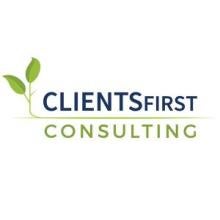Choosing the right CRM system can drastically change how law firms and professional service firms interact with their clients and develop business. However, navigating the complex landscape of CRM options and understanding the intricacies of legal practice workflows can be a complex endeavor.
Thankfully, law firms and professional service firms can leverage the knowledge of CRM Consultants to act as a strategic advisor and guide firms from the selection process to firm wide roll-out. CRM Consultants possess a deep understanding of both legal practice workflows and the intricacies of CRM technology.
But with a plethora of consultants available, how do you select the right CRM Consultant based on your firm’s unique needs? Here are a few key steps your firm should follow to ensure you select the right CRM Consultant:
1. Define Your Requirements and Goals
Before you begin reaching out to consultants, conducting a thorough self-assessment and defining your firm’s specific requirements and goals is paramount for several reasons. To begin, the assessment can identify some of the current issues or inefficiencies your firm is facing with your client management processes. This analysis fosters a clear understanding of the problems at hand and can be used to prioritize the CRMs desired functionality.
By articulating these requirements and goals upfront, consultants can tailor their solutions to your firm’s unique challenges. It also allows the consultant to gain a deeper understanding of your firm and provide more strategic assistance during the selection or improvement project. This self-assessment can lay the groundwork to vet, communicate with, and ultimately, select the right consultant.
2. Research Potential Consultants
Once you have an idea of your goals and requirements for the CRM system, you should then begin to research potential consultants on certain aspects of their work, like industry expertise, vendor neutrality, and their methodology.
Law firms operate within a complex technological ecosystem. Your CRM Consultant has to have a deep understanding of your industries processes and
When selecting the right CRM Consultant, ensure they have proven experience within your industry and understand the various nuances among your processes. Consultants with industry-specific experience can thoroughly assess your existing technology stack to ensure their solutions integrate with your existing workflows.
CRM Consultants with strong affiliations to specific CRM providers may be incentivized to recommend one platform over another – regardless of the suitability for your firm. Choosing a CRM based on vendor pressure can lead to challenges during implementation and limit user adoption. A vendor-neutral consultant prioritizes finding the CRM that best aligns with your firm’s needs and budget.
When researching CRM Consultants, ensure they have a structured approach to the CRM selection process that covers everything from needs assessment to data migration planning. Their methodology should reinforce what was found in your self-assessment to ensure the process is centered around your firms specific challenges and goals.
3. Conduct In-Depth Interviews
While initial research helps narrow down the pool of possible CRM Consultants, in-depth research must be conducted to assess their practical understanding of your industry and specific CRM needs. Interviews should be focused on scenario-based questions that delve into their ability to translate your workflows into actionable CRM configurations.
CRM Consultants also rarely work alone. These interviews also provide an opportunity to understand the composition and culture of their team. CRM Consultants are extensions of your team and if they do not align with your firm’s culture or are not able to integrate seamlessly with your team’s work style, they probably are not the best fit.
4. Reference Checks
After interviews have been conducted with possible candidates, firms should employ a two-pronged approach to further validate their expertise and suitability for the project. To ensure the consultant has demonstrable experience catering to your specific needs and challenges, request references from previous clients within similar industries. Ask detailed questions about their ability to identify and recommend suitable solutions, or address stakeholder concerns and overcome managerial resistance.
As an extension of your firm, the consultant has to be transparent and provide clear and timely updates on the status of the project. Open communication channels should be established between stakeholders and the CRM Consultant to effectively manage the expectations throughout the project.
Through a combination of in-depth interviews and reference checks, law firms gain a multi-faceted perspective on potential CRM Consultants. A rigorous evaluation processes assures firms they are selecting the most qualified consultant that can help them achieve CRM success.
Choosing the right CRM consultant is not about finding someone who understands technology; it’s about finding a strategic partner who can bridge between your firm’s unique needs and a successful CRM implementation.
By following these steps and fostering a collaborative partnership with your CRM consultant, law firms can leverage the power of CRM technology to its full potential. This translates to a more efficient practice, enhanced client service delivery, and a significant competitive edge in the ever-evolving legal landscape.




 />i
/>i

